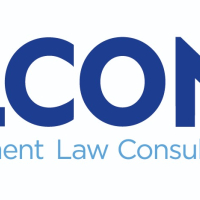Making workplaces work for trauma survivors

In this article I look at what trauma is, how it affects employees at work, and what employers can do to prevent workplace trauma, and support employees who have experienced trauma.
First of all let’s address why it’s in an employer’s interest to proactively address employee trauma:
Picture this… you’ve recently run a costly recruitment campaign and successfully beat the competition to bag a great new employee who you’ve invested time and resources in already, with onboarding, equipment and training. They’ve got just the skills and experience you’ve been looking for, they come with glowing references, they are up and running quickly adding value. You are confident that you made a great choice. But then something happens and suddenly you have someone who has trouble concentrating, retaining information and making decisions. They are making mistakes at work and have started taking time off sick. As a result of all this their relationships in work are suffering, as is team morale.
Or perhaps you gradually begin to see some unexpected and undesirable behaviour – interactions with colleagues are poor and conflicts arise, the employee struggles to hear constructive feedback, they become withdrawn and paranoid, irritable and short-tempered, their physical appearance and hygiene is suffering, they’re always tired and you suspect they may be relying on alcohol or other drugs.
The trauma survivor employee is not a lost cause!
The chances are that your employee has recently experienced a trauma, or is being triggered by past trauma. The employee is not a lost cause! They are still the employee you brought on board, but they might need to rebuild their confidence and get help to manage their trauma responses.
So what are you going to do as an employer? Are you going to reach out to that person; or do nothing and face months of poor productivity, poor engagement, poor customer service, and probably end up dismissing or losing the employee? You could hope this is a one off, but the truth is - and you’ll probably know this if you have experience of managing people - there aren’t many people lucky enough not to have experienced some trauma in their lives. There’s not a wealth of prospective employees out there without scars – so surely it’s better to take a proactive people focussed approach to trauma?
The extent of trauma
A recent World Health Organization (WHO) study found that 70 percent of people across 24 countries have experienced trauma, with an average of 3.2 traumatic events over the course of a lifetime.
Childhood trauma affects one in five adults, with around 8.5 million people aged 18 to 74 years having experienced at least one form of child abuse before the age of 16 in the UK (ONS).
A 2022 survey by Tiny Pulse found that 54% of respondents had experienced at least one traumatic event in the past 2 years, which rose to 61% in women, 72% in non-binary people and 59% in multicultural or bi-racial people. Black respondents were most likely to experience PTSD.
Trauma is a part of life for most people, and employees can’t just leave that at the door when they step into work.
What is trauma?
Trauma is a psychologically overwhelming response to a negative life event or experience. This could be life-changing or life-threatening: such as an accident, natural disaster, assault, robbery, fire, war, or the death of a loved one. It can come about from witnessing these events happen to other people: so for example those working in health and emergency services; or working with victims of violent crimes or disasters.
But it’s not just these big events that cause trauma responses, which can be triggered by being bullied or harassed, being discriminated against, going through a health scare or the ending of a relationship. For example, many have experienced trauma through the pandemic due to the isolation of lockdown, or fears about becoming ill or losing a job. Trauma can also be experienced collectively by marginalised or targeted groups, and can be heightened by current events and media coverage.
A person who has gone through trauma can feel as if they relive it every day, or they may appear to be unaffected until an event or a memory triggers their trauma response.
Psychiatrist Bessel van der Kolk said:
“Trauma is not just an event that took place sometime in the past; it is also the imprint left by that experience on mind, brain, and body. This imprint has ongoing consequences for how the human organism manages to survive in the present. Trauma results in a fundamental reorganization of the way mind and brain manage perceptions. It changes not only how we think and what we think about, but also our very capacity to think.”
PTSD
With longer term trauma-based responses such as Post Traumatic Stress Disorder (PTSD) a person might exhibit similar signs of trauma as those described above, but not have suffered a recent trauma that you are aware of.
PTSD sufferers can experience flashbacks and nightmares, triggered by situations, conversations, even people that consciously or unconsciously remind them of the traumatic event.
Hyperarousal occurs when the person is constantly on the alert and leads to insomnia, difficulty concentrating, paranoia, fear and panic. Conversely sufferers may try to shut out their feelings, avoiding anything that reminds them of a traumatic event, and withdrawing from friends, family and work. They may develop depression and even feel emotions like guilt.
The primitive brain
While the effects of an individual’s trauma response may be apparent in their behaviours, research has shown that a further impact of trauma is on intellectual abilities. Paul MacLean (1983,1993) described the ‘Triune Brain’ – how the human brain is composed of sub-brains. His theory is that as our brains have evolved they retained structures of the primitive brain inherited from our reptilian ancestors.
This Reptilian Brain generates our most primal, instinctual responses; the Paleomammalian Brain enables behaviours; and the most intelligent brain, the Neomammalian Brain, our most evolved and intelligent brain, gives us rational, logical and abstract thought. When we feel safe we have full access to our range of brain power but when we are under stress we ‘downshift’ and operate is a more primitive way. We become less flexible, creative and intelligent; we might feel angry or upset despite telling ourselves we shouldn’t be; we become aggressive and territorial.
This ‘downshifting’ impacts on our abilities to deal with change; to access the higher cognitive functions to enable us to respect and value diversity – a survival instinct of our Reptilian Brain makes us take minimal information and draw conclusions about whether other people are Us or Them, friend or foe; to be creative – when the mind is focussed on stressors, divergent thinking is impossible as the Reptilian Brain becomes rigid. Of course all these things impact the workplace.
Workplace trauma
While workplace trauma has long been recognised in high risk professions such as the military and emergency services, it is becoming more prevalent among the wider workforce. Trauma can be experienced in the workplace through bullying, toxic culture, change, harassment and discrimination. COVID has had an impact, with more job insecurity and isolation, work-life boundaries becoming blurred, and expectations to respond quickly to changes such as ‘zoom culture’.
Employees who are experiencing trauma can find themselves labelled as lazy, moody, unreliable, indecisive, disorganised or overly sensitive which can lead to a spiralling of trauma responses.
A research project on childhood trauma survivors led by Nottingham Business School found ‘a lack of awareness and trust among managers and colleagues within their workplaces, which often led to feelings of anxiety and apprehension, and in many cases the sense of insecurity, vulnerability and of not belonging’. Survivors feared stigmatisation and being perceived as ‘troublemakers’ if they were open about trauma.
The survivors feared talking openly about the trauma in case it led to stigmatisation and bias. They were also concerned about being perceived as the ‘troublemakers’ and creating the perception that their trauma prevents them for doing their work.
How employers can help employees to overcome trauma, and prevent it
The employer has a duty of care to not cause trauma to employees, and managers and HR are responsible for monitoring well-being and providing support. Organisationally there are steps you can put in place:
- Integrate trauma into your welfare and wellbeing strategy, recognising the value in supporting trauma survivors.
- Improve manager confidence and credibility by providing training and coaching.
- Build your organisational values and leadership competencies to incorporate empathy and support for others. Take a zero tolerance approach to bullying, harassment and abusive management.
- Have resources available, such as Employee Assistance Programmes and Mental Health First Aiders, and regularly remind employees about them, but don’t rely on them alone!
- Provide channels for informal conflict resolution like workplace mediation, which can reduce incidences of trauma-inducing formal grievance and disciplinaries.
- Ensure your policies and procedures facilitate a safe environment and that your other strategies are supportive of trauma prevention. For example DEI: recognise and act on particular traumatic events and mental health challenges that affect ethnic minorities, LGBTQ+ people and women.
- Ensure the working environment supports safe and equitable work; is accessible for all; avoids traumatising physical spaces e.g. small and claustrophobic or crowded and loud; provide space and privacy for self-care.
- Check in regularly with employees through different methods like direct conversations and anonymous surveys. Use findings from these to inform your wellbeing strategy and evaluate it after implementing.
- Recognise that when someone is traumatised communication becomes more challenging, so create safe spaces for conversations, allow for breaks and avoid interruptions or rushing.
- Tackle it individually – help employees overcome the effects of trauma on their work, like difficulty concentrating and overwhelm, by giving them coping tools such as distraction free space, and breaking work down into manageable chunks.
Trauma is almost inevitable. Through building a culture of empathy and ensuring managers are equipped to deal with trauma you can support trauma survivors in work to lessen the negative impacts of trauma for them, and the organisation.
I have 18 years’ experience in HR, I am level 7 CIPD qualified and my previous roles have ranged from standalone advisor to group HR leader in various fields. There’s not much in HR that I haven’t…
Labour’s new Employment Rights Bill: challenges employers...
More Articles
The Value of a Sustainability Strategy in the Tender Process
Unlocking the Power of Raw Financial Data
Would you like to promote an article ?
Post articles and opinions on Professionals UK
to attract new clients and referrals. Feature in newsletters.
Join for free today and upload your articles for new contacts to read and enquire further.







